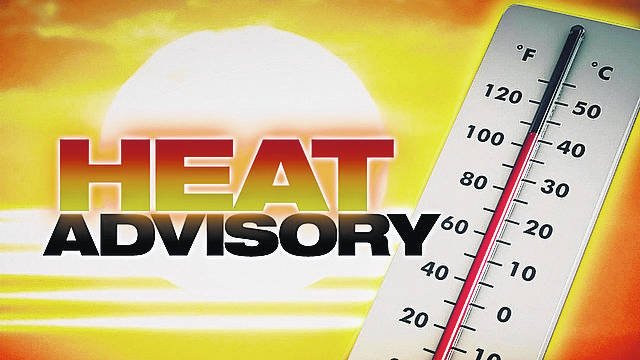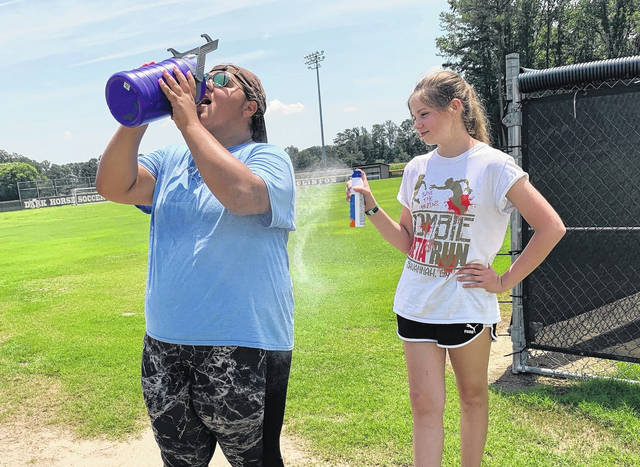Sampson County is one of many across the state that has been subject to heat advisory warnings in the last few days. In an effort to prevent heat-related health issues, local emergency personnel have shared vital do’s and don’ts during extreme heat.
The National Weather Service issued the heat advisory for counties east of Wake where high temperatures and humidity were expected to make the air feel steamy. Temperatures were expected to peak in the upper 90s, but feel more like 105 degrees, meteorologists reported.
While weather forecasts indicated a slight drop in temperature Thursday, the high for Friday was expected to reach 98 degrees with a heat index near 110.
According to Erick Herring, operations chief with Sampson County Emergency Management, dehydration from heat exhaustion is the biggest obstacle that many people face during this time of year. The problem, he said, is that many citizens don’t keep themselves hydrated ahead of the time they spend outside, therefore they often suffer from heat exhaustion or worse, a heat stroke.
“It’s important for you to stay hydrated,” Herring explained. “It’s important to drink plenty of fluids before activities, during activities and after activities.”
Anyone experiencing symptoms like faintness or dizziness, nausea or vomiting, heavy sweating, weak pulse, pale or flushed face, muscle cramps, headache or fatigue could be experiencing heat exhaustion and should treat their symptoms. If left untreated, Herring said a heat stroke, which is life-threatening, is possible.
Possibly the worst sign would be for someone to not sweat after being exposed to the heat for an extended period of time.
“Once you stop sweating, there is a true emergency,” Herring said. “If these signs occur, call 911 immediately. It’s important to get out of the heat and cool off when these signs start happening. Just make sure emergency services is on the way.”
The key to preventing heat exhaustion and stroke is to keep the body hydrated. Herring said many people get into trouble when they participate in activities outside and forget to drink anything before hand, and most especially afterwards.
Locally, marching band students at Clinton High School were into the second week of camp and Band Director Travis Jordan urged students to bring plenty of fluids and sunscreen with them each day. The key, he said, to preventing any heat-related illness was to stay hydrated and take frequent breaks.
Like Herring advised, Jordan said he was making sure students stayed hydrated by drinking fluids throughout the day and taking opportunities to come inside and take breaks when needed.
Planning activities according to the weather pattern, Herring said, is also a way to keep heat-related illnesses from striking. Emergency personnel encourage everyone to follow the weather forecast and choose to do outdoor activities on the days that offer much cooler temperatures.
And, for those who have to be outside for work obligations, Herring suggested taking frequent breaks to drink fluids and keep hydrated, as well as taking time to cool off as often as possible.
“If someone does need to go outside, the best times of the day are early morning or late afternoon,” Herring said. “From sun up to about 10 a.m., working or playing outside is fine. Someone can still run into trouble when outside in the late afternoon hours, but that time is better than the middle of the afternoon.”
In the event of heat exhaustion, Herring said, placing a cool rag on the neck or groin area can assist someone with the cooling off process, and advised that moving out of the heat and into a shady or air-conditioned place may also aide in helping overcome heat exhaustion.
The safety and care of children and animals is stressed during this time of year. Herring says it is important to remember to not leave anyone, including pets, inside a parked car. When a car is parked in the sun, the temperature in the vehicle can rise 20 degrees in 10 minutes.


